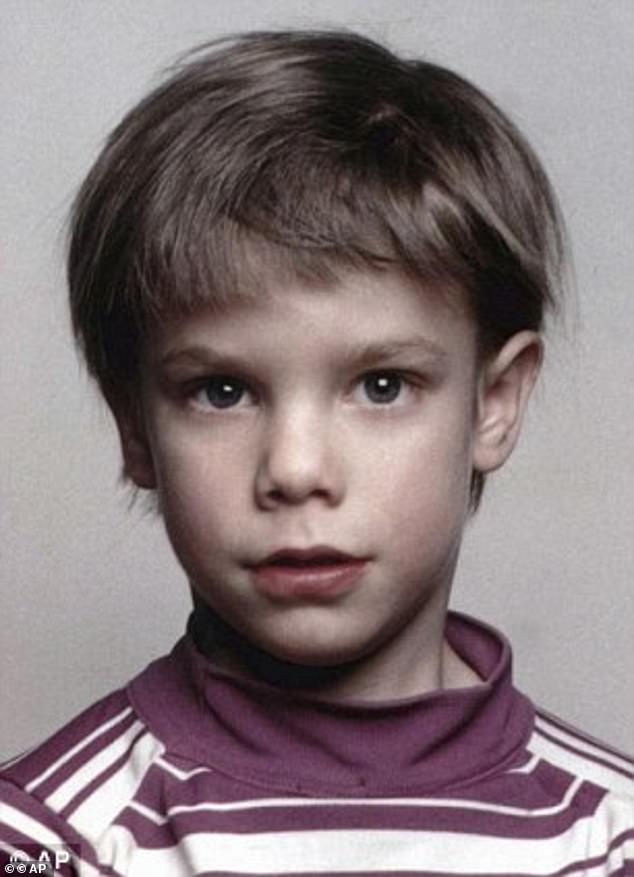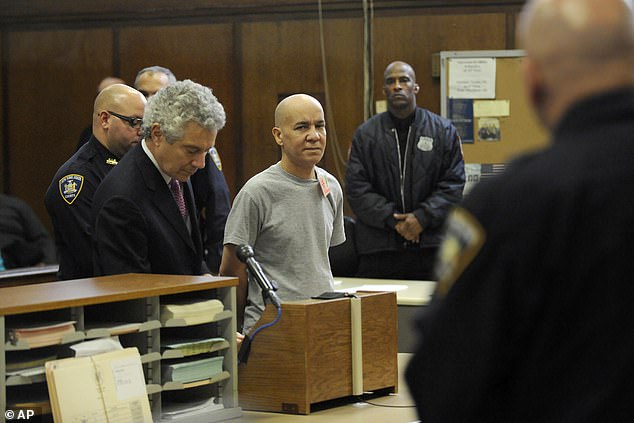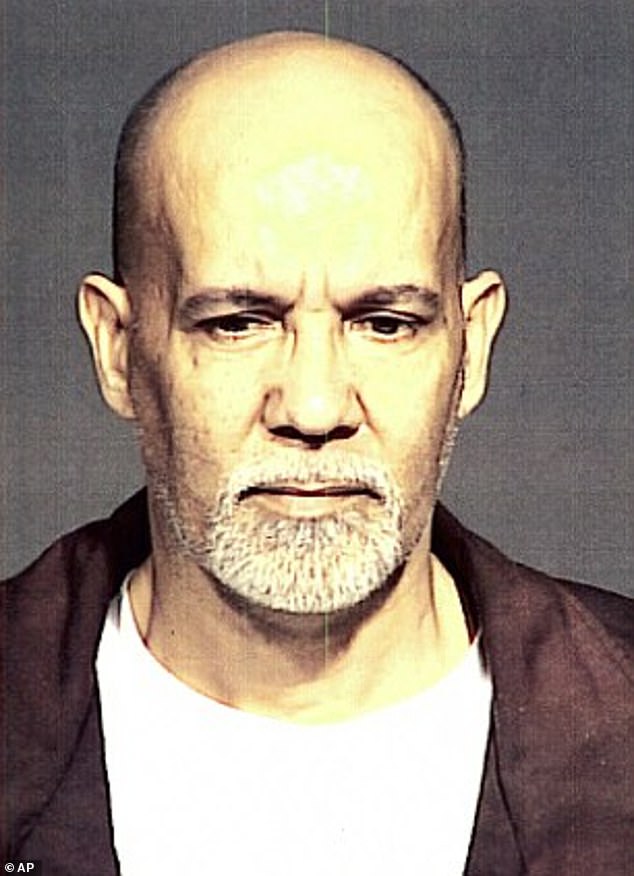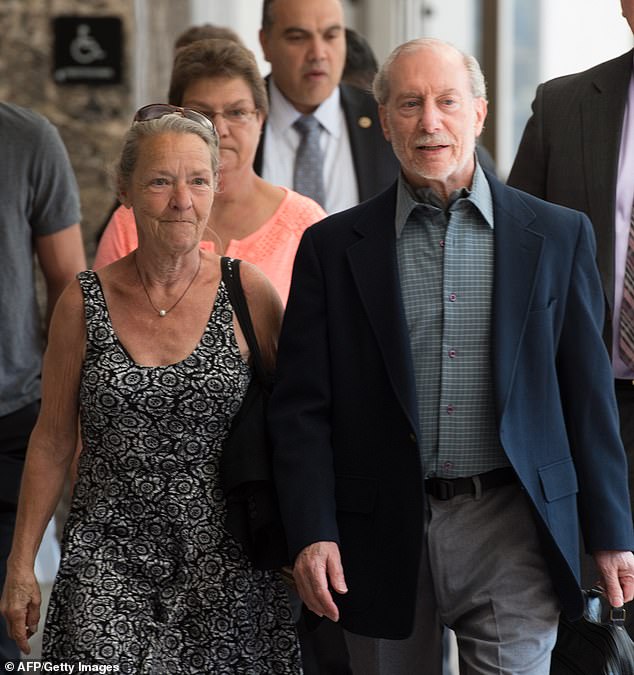A New Yorker has had his conviction overturned for the 1979 murder of Etan Patz, a six-year-old boy abducted and killed the first time his parents let him walk home alone from a school bus stop.
Pedro Hernandez should be retried for the killing of Etan Patz or set free, a federal appeals court ruled on Monday.
Hernandez was convicted in 2017 of killing Patz in 1979, after confessing he’d lured the youngster to a basement in Manhattan’s SoHo neighborhood.
On Monday, the appeals court ruled that instructions given to jurors as they prepared to deliberate that trial were improper and prejudicial, the New York Times warned.
A three-judge panel ruled on Monday that ‘the state trial court contradicted clearly established federal law and that this error was not harmless.’
Hernandez was arrested in 2012 and first went on trial for Patz’ murder in 2015, but the prosecution ended in a hung jury before a second trial saw him convicted following over nine days of deliberations.
Etan’s body was never recovered. Hernandez – who was 18 at the time of Etan’s disappearance – said that he dumped the boy’s remains in the garbage. No physical evidence was ever produced tying Hernandez to the crime.
Hernandez’s lawyers argued at the time of his arrest in 2012 that he suffered from schizotypal personality disorder, which can cause hallucinations, and that he had a low IQ ‘at the border of intellectual disability.’

Etan Patz, 6, disappeared in May 1979 when he was believed to be abducted on his way to a school bus stop

Pedro Hernandez confessed to killing Patz, however he has not had his conviction overturned and will either receive a new trial or will be freed
The crux of the decision to overturn Hernandez’s conviction hinged on a confession he made to police in 2012.
He had never before been a suspect, but his family reported to cops that he had confessed during a prayer group to killing a child in New York at the time of Etan’s disappearance.
Under interrogation, Hernandez – who worked in a bodega near to where the boy’s bus stop was – again confessed to luring Etan into a basement by promising him soda.
‘Something just took over me,’ he said in a recorded confession. ‘I felt so sorry.’
Hernandez’s attorneys attempted to have the interrogation confession thrown out, arguing that the ‘confession in one of the nation’s most notorious child disappearances was false, peppered with questionable claims and made after almost seven hours of police questioning.’
He had confessed before his Miranda Rights were read to him, and detectives then had him repeat the confession on video after they were read.
His attorneys argued that the confession was the result of psychotic hallucinations, and when jurors eventually convicted him in 2017, they said the deliberations over his confessions had been ‘difficult.’
Three notes the jury sent to the judge during their deliberations asked whether they should disregard the confession due to the lack of Miranda Rights being read beforehand.
‘The trial court instructed the jury, without further explanation, that ‘the answer is, no,” the judge’s in Monday’s panel said.
The judging panel ruled that these instructions ‘would have unquestionably impacted deliberations.’
‘Under the extraordinary circumstances of this case, we believe that no fair-minded jurist would conclude that the state has proved harmlessness beyond a reasonable doubt’ the panel wrote.

Hernandez’s lawyers argued at the time of his arrest in 2012 that he suffered from schizotypal personality disorder, which can cause hallucinations, and that he had a low IQ ‘at the border of intellectual disability’

Etan’s parents Julie and Stanley Patz arrive at Hernandez’s sentencing in 2017
Etan’s disappearance stunned New York City and led to nationwide searches when he vanished over four decades ago, and it is remembered by many Americans as a watershed moment in the end of parents allowing their children to move around unattended.
His case is often credited for ushering in an age of heightened attention on the cases of missing children.
He became the first child pictured on milk carton campaigns, where the cases of missing children were put on the labels of milk cartons in hopes of bringing attention to their investigations.
The anniversary of Etan’s disappearance also became National Missing Children’s Day.
Following the decision on Monday, one of Hernandez’s trial attorneys Harvey Fishbein said that he always believed the confession was false.
He said that the ruling from the judges panel ‘reads that an innocent man was convicted.’
‘For more than 13 years, Pedro Hernandez has been in prison for a crime he did not commit and based on a conviction that the Second Circuit has now made clear was obtained in clear violation of the law,’ Fishbein said in a statement.












